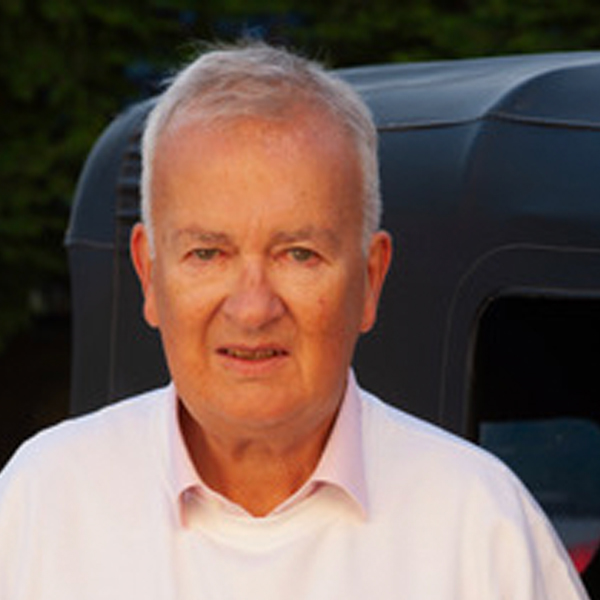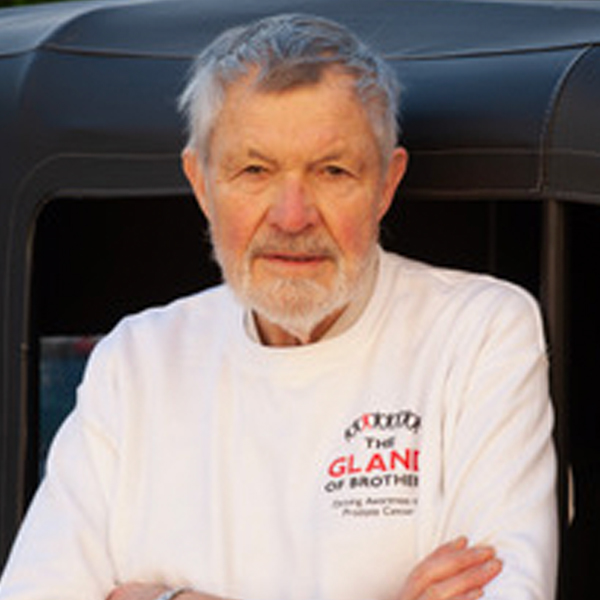Meet the Team

Christopher Langham
Christopher, aged 72, was born in Ilford and after leaving school went to work for local timber importer. There he was offered an opportunity to go and work in Sweden which led to 25 years working in the timber industry around the world. Then in 1993, in collaboration with an Australian occupational therapist, he began manufacturing the Bambach Saddle Seat which was the first seat to win medical approval for people with postural and back problems.
In 2019 he underwent an operation to remove his prostate but in April 2022 his prostate speciific antigen (PSA)* levels began to rise and he underwent a course of radiotherapy at the Churchill Hospital in Oxford. It was this experience which led him to create the Gland of brothers, together with his friend Michael St Maur Sheil in order
‘…to give other men like me a kick up the back-side to have the test - I have met too many people who left it too late until palliative (end of life) care was the only alternative treatment. If we can prolong life for just one man it will all be worthwhile’.

Michael St Maur Sheil
Michael, aged 77, was a career long photo-journalist who worked in over 60 countries and who lives in the same village as Christopher.
Mike says: ‘it was a total shock in November 2021 when a routine blood-test suggested I might have prostate cancer. Within weeks it was confirmed and I found myself being treated by the amazing staff at the Churchill Hospital in Oxford. After 37 sessions of radio-therapy I was declared cancer free but during that time I met with many fellow sufferers whose lives had been totally devastated by their condition.
Chris was a huge support during my treatment and, when he suggested the idea of riding around in a TukTuk to try and make people more aware of the problem of prostate cancer. So now we are the proud owners of the Tuk-Tuk in which we intend to ‘tour the country’ talking to men about their health and wellbeing, specifically about their prostate’.
*The PSA test is a blood test to help detect prostate cancer which is administered by GPs. It is not perfect and will not find all prostate cancers but it is a helpful indicator for a problem which affects 1 in 8 males and which if not detected at an early stage, can prove fatal.